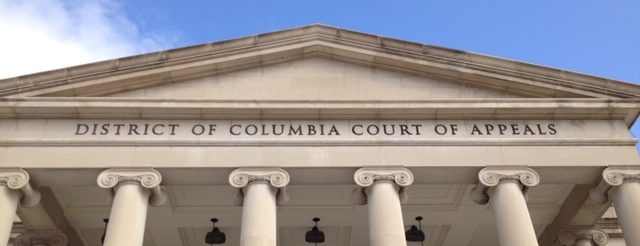
On receiving stolen property in Lucas
Antonio Lucas robbed a man in Maryland. He then traveled to D.C. where he was arrested.
Mr. Lucas could not be charged in D.C. with the felony offense of robbery. Because that crime had occurred in a different jurisdiction.
Instead, he was charged with — and ultimately convicted of – Receiving Stolen Property in violation of D.C. Code § 22-3232. This section of the D.C. crimes code makes it illegal to buy, receive, possess or obtain control of property if you either know or should know that the property was stolen.
Mr. Lucas had some interesting arguments in appealing his case in Antonio Lucas v. United States, __ A.3d __ (D.C. 2023).
First, he argued that, since he did not buy, receive, possess or obtain control of the stolen property in D.C., the court had no jurisdiction to hear his case.
He was certainly correct with respect to buying, receiving or obtaining the property. Referring to the moment of acquisition, all of that happened in Maryland. However, the court did not accept his argument that the definition of “possession” is limited to the time period in which the person “takes possession.”
Instead, the “plain language of Section 22-3232 indicates that ‘possesses’ refers to the act of being in possession of stolen property rather than the momentary act of taking possession of the property.”
In other words, although Mr. Lucas may have taken possession of the stolen property in Maryland, he continued to possess it in D.C.
Mr. Lucas also argued that the statute’s title, “Receiving Stolen Property,” confirms that the statute criminalizes only the act of talking possession of stolen property, not the continuing act of possessing it.
The court dispatched with this argument quickly: “A statute’s title may be a useful aid in resolving ambiguity, but it cannot limit the plain meaning of the text.” (Internal citations and quotations omitted.) It continued: “Here the statutory text strongly suggests that ‘possesses” refers to the act of being in possession. The statute’s title does not override that plain meaning.”
Of note, the opinion cites two canons of statutory construction. The first is that, unless otherwise defined, words will be interpreted as taking their ordinary, contemporary, common meaning.
The second is the principle of noscitur a sociis – that is, the idea that a word or phrase “is known by the company it keeps.” In other words, the meaning of an unclear word or phrase should be ascertained by the words immediately surrounding it.
Henry Escoto represented Mr. Lucas at trial, and Timothy Cone represented him on appeal. D.C. Superior Court Judge Frederick Weisberg presided at trial.
